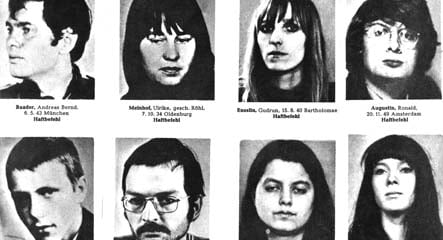The Stammheim jail in the southwestern city of Stuttgart will be demolished in 2012, a spokesman for the Baden-Wuerttemberg state justice ministry, Stefan Wirz, told the paper.
Wirz said the state had determined that demolition would be less costly than a top-to-bottom renovation of the prison, which currently holds 580 inmates. A psychiatric clinic with 200 beds is to be built in its place.
The high-rise penitentiary became a symbol of the campaign against the far-left Baader Meinhof Gang, also known as the Red Army Faction (RAF), which carried out a wave of assassinations, bombings and kidnappings in the 1970s against what it called the corrupt West German state. Several of its leaders were imprisoned at Stammheim and, on the prison’s sixth floor, Andreas Baader, Gudrun Ensslin and Jan-Carl Raspe committed suicide while in custody on October 18, 1977.
The story of the group, which is believed to have killed 34 people before disbanding in 1998, has received blanket media coverage in recent days due to the release next Thursday of the all-star drama “The Baader Meinhof Complex,” reportedly the most expensive German movie to date. The German Film Board has selected the production as this year’s nominee for the best foreign language picture Oscar.




 Please whitelist us to continue reading.
Please whitelist us to continue reading.